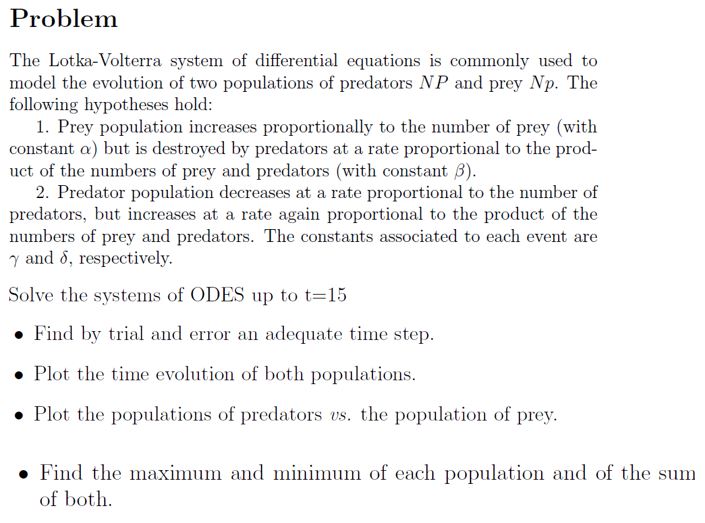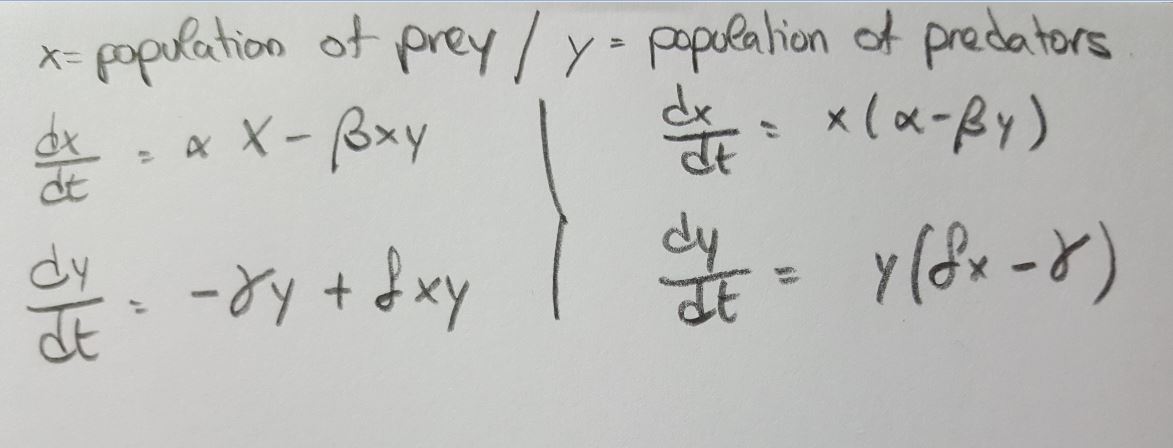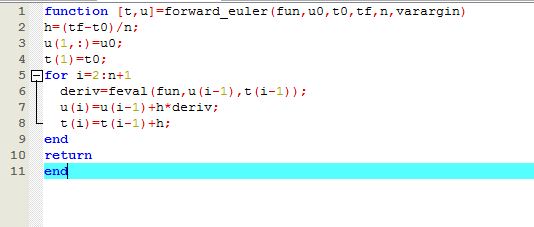
Lotka-Volterra
Publicado por Javier (2 intervenciones) el 30/12/2016 18:40:23
Hello everyone, I need to solve this problem in octave using the euler´s method (forward euler and backward euler) but I am not able. I was recommended this forum and was told that there were very smart people. If you could help me I would be very grateful.
Here is the problem:

Here is the equation:

Here is mi forward euler program:

Here is the problem:
Here is the equation:
Here is mi forward euler program:
Valora esta pregunta


0
